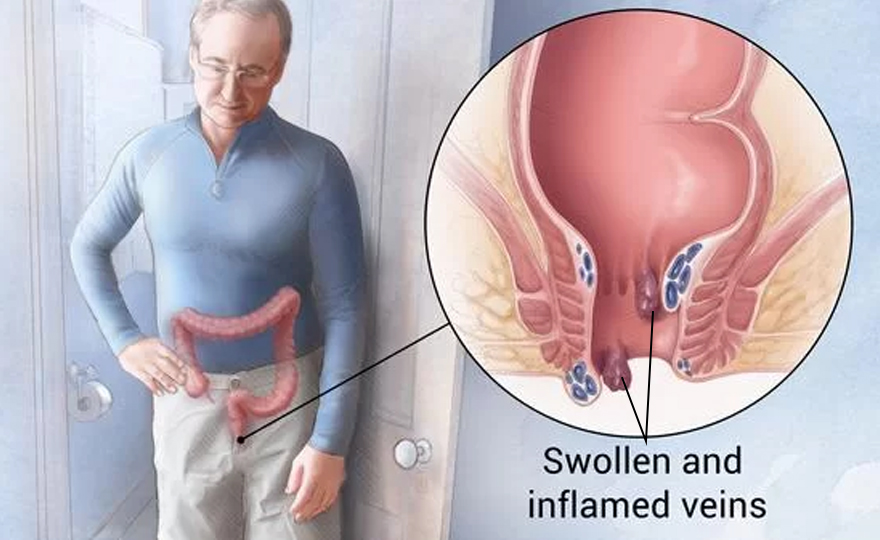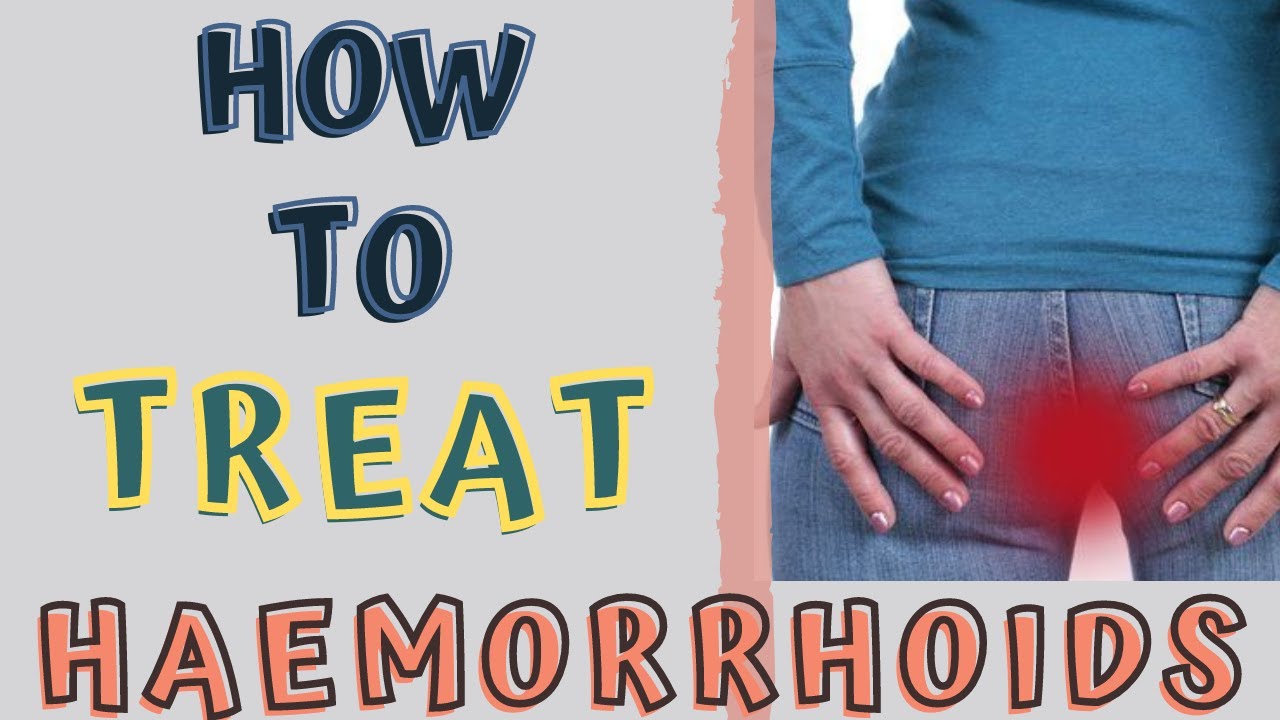How To Prevent And Treat Piles?
Piles, also known as hemorrhoids, are swollen veins in the anus and lower rectum. They can cause discomfort, itching, and rectal bleeding and can be the result of straining during bowel movements, prolonged sitting, pregnancy, chronic constipation or diarrhea, a low-fiber diet, aging, and genetics.
Author:Suleman ShahReviewer:Han JuFeb 07, 202319.5K Shares887.7K Views

Piles, also known as hemorrhoids, are swollen veins in the anus and lower rectum. They can cause discomfort, itching, and rectal bleeding and can be the result of straining during bowel movements, prolonged sitting, pregnancy, chronic constipationor diarrhea, a low-fiber diet, aging, and genetics.
Treatment for piles can include over-the-counter creams and ointments, changes in diet and bowel habits, increased fiber intake, stool softeners, warm baths, sitz baths, and surgery for severe cases.
Preventing piles can be done by incorporating a high-fiber diet, avoiding straining during bowel movements, exercising regularly, maintaining good hygiene, and following a healthy lifestyle.
If you experience rectal bleeding, severe pain or discomfort, or if your symptoms persist despite self-care and lifestyle changes, it is important to see a doctor for a proper diagnosis and treatment plan.
Types Of Piles
There are two main types of piles: internal piles and external piles.
- Internal piles:Internal piles are located inside the rectum and are usually not visible or painful. They can cause rectal bleeding, but may not cause discomfort.
- External piles:External piles are located outside the anus and can be felt as lumps. They can cause itching, pain, and discomfort.
Additionally, piles can be classified based on their severity, with grades 1 to 4. Grade 1 piles are small and may not cause any symptoms, while grade 4 piles are large and prolapsed (they bulge out of the anus) and can be very painful.
It is important to see a doctor for a proper diagnosis and treatment plan for piles, as the severity and type of piles can affect the treatment options available.
Prevention And Treatment Of Piles
Preventing piles, also known as hemorrhoids, can help reduce the risk of developing the condition. Here are some tips for preventing piles:
- Eat a high-fiber diet: Incorporating plenty of fruits, vegetables, and whole grains into your diet can help prevent constipation, which can lead to the development of piles.
- Drink plenty of water: Staying hydrated can help prevent constipation and reduce the risk of piles.
- Avoid prolonged sitting: Prolonged sitting can put pressure on the veins in the anus and rectum, which can contribute to the development of piles.
- Exercise regularly: Regular physical activity can help reduce the risk of piles by improving bowel regularity and reducing the pressure on the veins in the anus and rectum.
- Avoid straining during bowel movements: Straining during bowel movements can increase the pressure on the veins in the anus and rectum, leading to the development of piles.
- Maintain good hygiene: Keeping the anal area clean and dry can help prevent infection and reduce the risk of developing piles.
- Avoid heavy lifting: Lifting heavy objects can increase the pressure on the veins in the anus and rectum, leading to the development of piles.
By following these tips and speaking with a doctor about your risk of piles, you can take steps to prevent the development of this condition.

HOW TO TREAT HAEMORRHOIDS AT HOME- PILES HOME REMEDIES
Foods For Piles
- Whole grainsare rich in fiber, vitamins, and minerals. They aid in the regulation of digestion and may lower the danger of piles.
- Fruits and vegetablesare rich in necessary elements for optimum health. They may assist in boosting the immune system, enhancing digestion, and decreasing the danger of piles.
- Lean proteinis an essential component of a balanced diet. It contributes to the growth and repair of tissues, the production of enzymes and hormones, and energy production.
- Healthy fatsare required for optimal health. They contribute to the maintenance of cell membranes, bodily insulation, and the absorption of fat-soluble vitamins.
- Herbs and spicesare a terrific way to add taste without calories. Additionally, they may aid with digestion and lower the danger of piles.
Homeopathy Treatment For Piles
Approximately one-third of the population will have piles at some time in their life. They may be highly uncomfortable and lead to bleeding on occasion. Homeopathy is a method of alternative medicine that entails administering diluted substances believed to create illness symptoms in order to cure it.
Homeopathy is not supported by scientific evidence and is not widely accepted as a therapyfor any medical problem. However, some individuals feel that homeopathic treatments for piles may be useful.
Numerous purportedly effective homeopathic medicines exist for the treatment of piles. These are among the most popular:
- Aesculus hippocastanum:This treatment, derived from the seeds of the horse chestnut tree, is said to reduce inflammationand discomfort.
- Hamamelis virginiana:This medicine, derived from the bark of the witch hazel tree, is said to reduce bleeding and discomfort.
- Collinsonia canadensis: This medicine is derived from the stone root plant's root and is said to reduce inflammation, discomfort, and bleeding.
There is no scientific evidence to support the claims that any of these homeopathic treatments are useful for treating piles.
It is crucial to see your doctor before using a homeopathic remedy to ensure that it is safe for you and will not conflict with any drugs you are taking.
People Also Ask
Are Piles Dangerous?
While piles are not usually dangerous, they can be painful and cause discomfort. In rare cases, severe piles can lead to complications such as infection, thrombosis, or rectal prolapse.
Can Piles Go Away On Their Own?
In some cases, mild piles may go away on their own with self-care and changes in lifestyle. However, severe or persistent piles may require medical treatment.
Can Piles Be Cured?
The cure for piles depends on the severity of the condition. Mild piles can often be treated with self-care and lifestyle changes, while more severe piles may require medical treatment such as medication or surgery.
Are There Home Remedies For Piles?
Yes, there are home remedies that can help relieve the symptoms of piles, including warm baths, increased fiber intake, and over-the-counter creams and ointments.
When Should I See A Doctor For Piles?
You should see a doctor for piles if you experience rectal bleeding, severe pain or discomfort, or if your symptoms persist despite self-care and lifestyle changes. Your doctor can diagnose the condition and recommend the best course of treatment for your specific case.
Final Thought
Piles are a common medical condition that can cause discomfort, itching, and rectal bleeding. Understanding the causes and symptoms of piles can help you make informed decisions about your health and the best course of treatment. If you suspect that you may have piles, speak with your doctor to receive a proper diagnosis and treatment plan.

Suleman Shah
Author
Suleman Shah is a researcher and freelance writer. As a researcher, he has worked with MNS University of Agriculture, Multan (Pakistan) and Texas A & M University (USA). He regularly writes science articles and blogs for science news website immersse.com and open access publishers OA Publishing London and Scientific Times. He loves to keep himself updated on scientific developments and convert these developments into everyday language to update the readers about the developments in the scientific era. His primary research focus is Plant sciences, and he contributed to this field by publishing his research in scientific journals and presenting his work at many Conferences.
Shah graduated from the University of Agriculture Faisalabad (Pakistan) and started his professional carrier with Jaffer Agro Services and later with the Agriculture Department of the Government of Pakistan. His research interest compelled and attracted him to proceed with his carrier in Plant sciences research. So, he started his Ph.D. in Soil Science at MNS University of Agriculture Multan (Pakistan). Later, he started working as a visiting scholar with Texas A&M University (USA).
Shah’s experience with big Open Excess publishers like Springers, Frontiers, MDPI, etc., testified to his belief in Open Access as a barrier-removing mechanism between researchers and the readers of their research. Shah believes that Open Access is revolutionizing the publication process and benefitting research in all fields.

Han Ju
Reviewer
Hello! I'm Han Ju, the heart behind World Wide Journals. My life is a unique tapestry woven from the threads of news, spirituality, and science, enriched by melodies from my guitar. Raised amidst tales of the ancient and the arcane, I developed a keen eye for the stories that truly matter. Through my work, I seek to bridge the seen with the unseen, marrying the rigor of science with the depth of spirituality.
Each article at World Wide Journals is a piece of this ongoing quest, blending analysis with personal reflection. Whether exploring quantum frontiers or strumming chords under the stars, my aim is to inspire and provoke thought, inviting you into a world where every discovery is a note in the grand symphony of existence.
Welcome aboard this journey of insight and exploration, where curiosity leads and music guides.
Latest Articles
Popular Articles